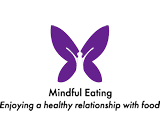 How To Eat More Mindfully
How To Eat More Mindfully
Mindful eating can be a powerful tool to help you improve your relationship with food, your overall well-being and your health. It’s about bringing more awareness to your eating, and approaching food with a more helpful, intentional attitude.
Think of mindful eating as a skill you build, just like anything. Take one step and start small- you don’t have to (and can’t!) radically change your entire eating habits overnight, and it can take consistent practice, especially if you do a lot of social or work-related eating, where you’re out of the routine. Here are lots of tips to help you start practising how to eat more mindfully. Pick one or two to focus on each week, and build from there. It has to feel achievable, and even small shifts can make a big difference.
-
- Tune in to your hunger and fullness cues: before you eat, check in with your body. Are you truly hungry, or are you eating out of boredom, habit, or because you’re stressed or unhappy? As you eat, pay attention to when you start feeling satisfied, and try to stop before you’re uncomfortably full. If you’re a plate clearer, practise leaving some food on your plate, or in a packet, especially if it’s a large packet.
- Mindful eating is about having more positive eating experiences: Be present with your food. Try to eat more slowly if you tend to ‘inhale’ food, and eat with no distractions. Put away your phone, turn off the TV, and be intentional about creating a calm, peaceful environment in which to eat your meal or snack. Think about what particularly triggers you to eat mindlessly. Try a check-in question during eating, for example: “Am I enjoying this food choice?” If you rate it less than 6 out of 10, consider stopping- you can always go for something else to eat.
 Notice your thoughts and emotions: are you feeling stressed, hurried, bored, happy, sad, angry or anxious whilst eating? How do these emotions influence your food choices, as well as how much and how quickly you eat? Don’t judge yourself, just observe and be curious. Aim to become more aware of your state of being when you eat- is there a pattern? You might benefit from addressing emotional eating, and finding strategies that help you to manage your feelings without food.
Notice your thoughts and emotions: are you feeling stressed, hurried, bored, happy, sad, angry or anxious whilst eating? How do these emotions influence your food choices, as well as how much and how quickly you eat? Don’t judge yourself, just observe and be curious. Aim to become more aware of your state of being when you eat- is there a pattern? You might benefit from addressing emotional eating, and finding strategies that help you to manage your feelings without food.- Make time: prioritise the planning, preparation and eating of food. Prioritising food and eating doesn’t have to take up huge amounts of time. Are you spending too much time on other things that you could easily cut down on, such as TV watching and social media usage? You might feel really satisfied with the process and results of cooking and eating your own homemade meal.
- Setting intentions in advance can be powerful: they can help to remove the impulse factor. For example, if you usually leave restaurants feeling stuffed and regretful, decide before you next go to a restaurant to have 1-2 courses and not three. Or if you tend to eat in a chaotic and unstructured way, set intentions around how many meals (eg: 3) and snacks (eg: 2) you would like to eat today, and going forward.
- Be choosy: go for what you really want to eat and skip the rest. Mindful eating is about giving yourself choice and permission whilst being selective, as you start learning to trust yourself more around food. Choice and permission is actually the antidote to overeating. For example, if you’re at a buffet, go up to the table, look at what’s on offer, walk away to consider your options and go back when you’ve made your decisions. Eating what you really want to eat can also help with FOMO (fear of missing out) when you’re eating with other people, which a sense of deprivation, brought about by trying to stick to overly restrictive food rules, only makes worse.
- Cultivate an ‘adding in’ mindset, not a ‘subtraction’ (cutting out) mindset: Build up your diet by adding in lots of variety. Feeling bored with the same old foods can lead to snacking and grazing. Consider introducing one vegetable, fruit, pulse or even herb each week that you’ve either not eaten for a long time or never eaten. Food novelty can help to build a good relationship with food.
 Be prepared! Carry snacks with you to avoid buying unhelpful foods on impulse. Examples: nuts, seeds, fruit, savoury oat cakes, plain dark chocolate, individually wrapped or cubes of cheese.
Be prepared! Carry snacks with you to avoid buying unhelpful foods on impulse. Examples: nuts, seeds, fruit, savoury oat cakes, plain dark chocolate, individually wrapped or cubes of cheese.- Notice when you’re having an all-or-nothing or catastrophic thought: this means there is no middle-ground, or room for minor deviations. Example: “I ate one biscuit, so I’ve completely ruined my diet for the day- I may as well just eat the whole packet and start fresh tomorrow”. A small slip is not a big failure, negating all your previous efforts. Don’t categorise foods as ‘good’ or ‘bad’- give yourself permission to eat all foods- it’s how often you eat a particular food that counts. Acknowledge that there’s no such thing as perfect eating and adopt a more flexible 80/20 ‘good enough’ mindset. A whimsical, unplanned meal or food treat is just that- accept that they are a fun, novel part of your eating habits- enjoy it and then get back on track rather than letting things snowball. Social or holiday eating is never going away, so it’s really important to be flexible.
- What did you eat today? Being able to recall everything you ate (all meals and snacks, including single mouthfuls of food), is a sign that you’ve got good awareness of what you’re eating and how you’re behaving around food.
- Read labels: read through the ingredients (you can even read them out loud). If there are multiple, unrecognisable ingredients, how do you feel about what you’re about to consume? Become more calorie aware- this isn’t about calorie counting, but just being aware of very calorie-dense foods (and there are many of them!). If you decide to buy them, just watch portion size.
- Set new intentions and beliefs: if you tell yourself or others that you usually eat a certain way, or you label yourself, this can keep you stuck in those behaviours. Example: “I always go overboard with takeaways and feel really full afterwards”, or “I always eat 3 courses in a restaurant without fail”, or “I have the sweetest tooth imaginable”. Re-write the script, to help you make a fresh start.
 Manage food cravings: What specifically do you want to eat? Think it through- don’t act on the first impulse. Set an intention around what, and how much, you will eat. What’s the healthiest option that would do the trick? Be fully present when you eat the craved food. When you’ve finished, move away from the food source to avoid picking at more mindlessly. Perhaps it’s not actually food you need, but something else.
Manage food cravings: What specifically do you want to eat? Think it through- don’t act on the first impulse. Set an intention around what, and how much, you will eat. What’s the healthiest option that would do the trick? Be fully present when you eat the craved food. When you’ve finished, move away from the food source to avoid picking at more mindlessly. Perhaps it’s not actually food you need, but something else.- Make grazing difficult: if foods are always in sight/reach in your home or work environment, it’s easy to feel prompted to eat. Be aware of the power of an open packet, and remove foods from where you’re sitting.
- Mindful drinking: just like mindful eating, if you want to cut back a bit on your alcohol consumption, practise sipping more slowly. Go for a drink that you really enjoy the flavour of and savour whilst you sip (ideally whilst not too distracted). Aim to buy or pour your own drinks, rather than others topping up your glass for you. At home, if the urge to drink wine is greater when a bottle is open, consider planning a few designated alcohol-free days and don’t have a bottle open during that time. Try to notice when your drinking has sped up (eg if stressed), and find some alternative relaxing strategies to help you feel calmer and slow down your drinking.
Interested in one-to-one sessions? Please email me. I also offer a FREE initial chat if you’d like to find out more and ask me any questions first. I’m based in Lightwater, Surrey and offer online sessions via Zoom or Teams.
SPECIAL OFFER: buy four sessions up front and get the 4th session HALF PRICE (£30).
See ‘Services‘ for more information.





